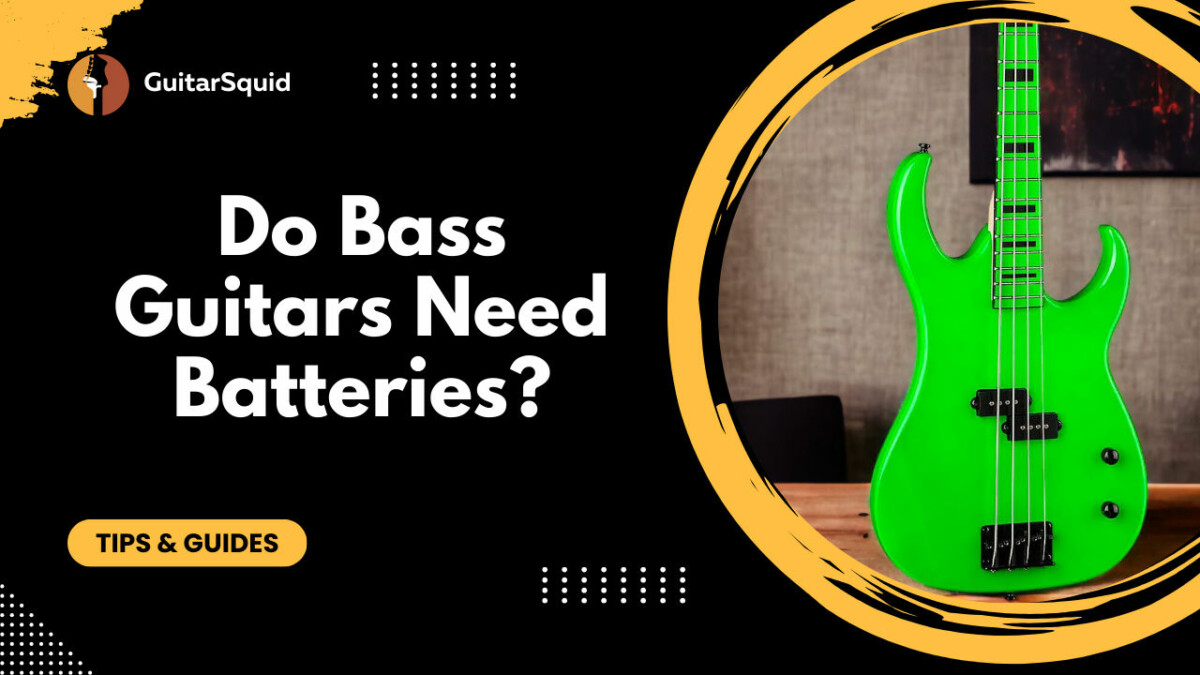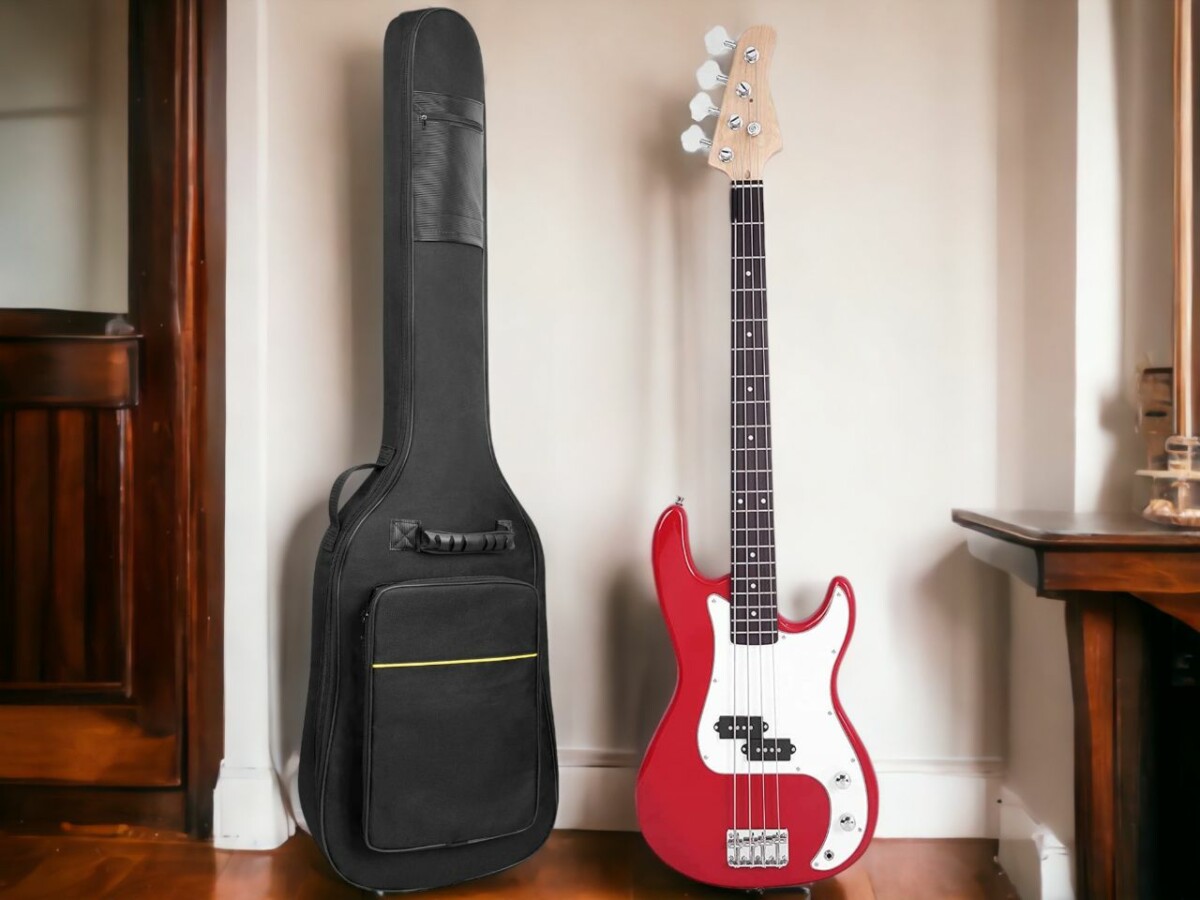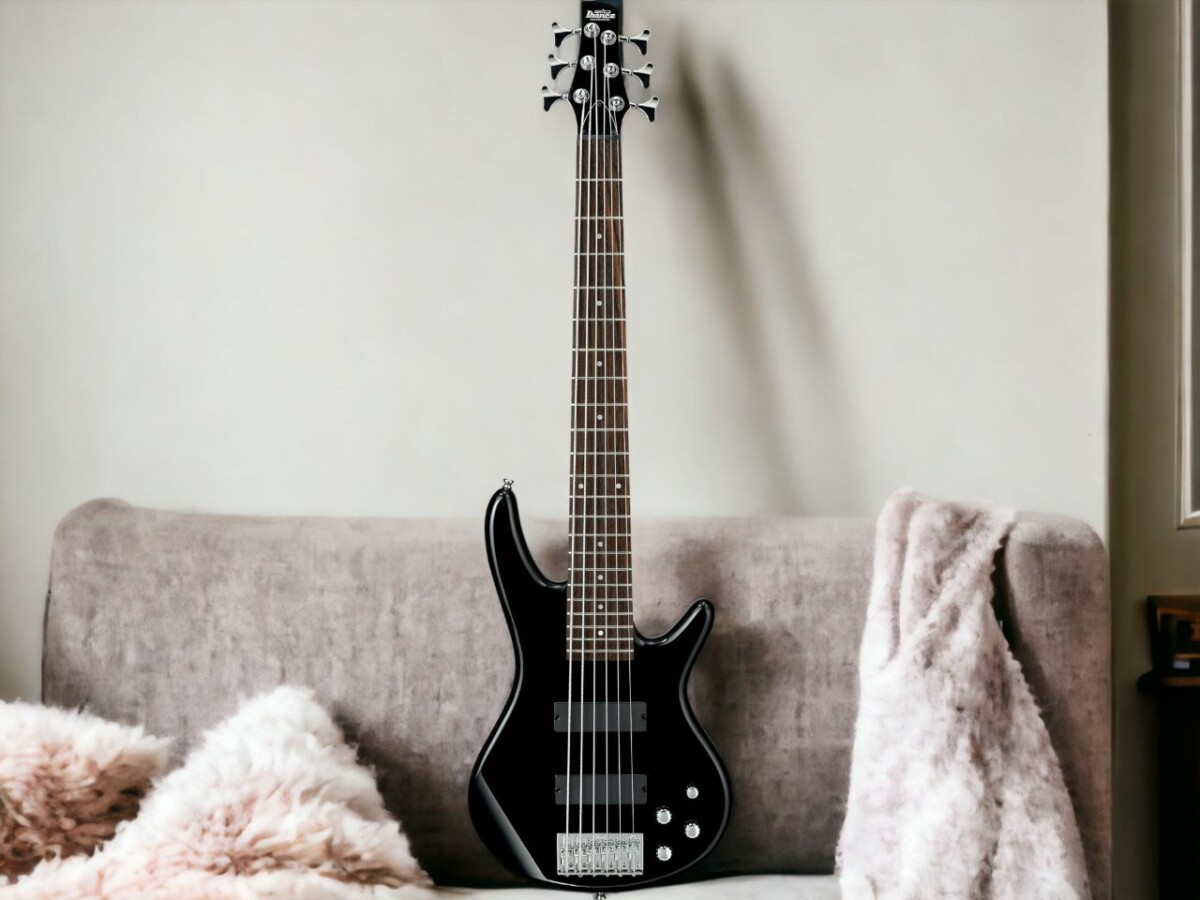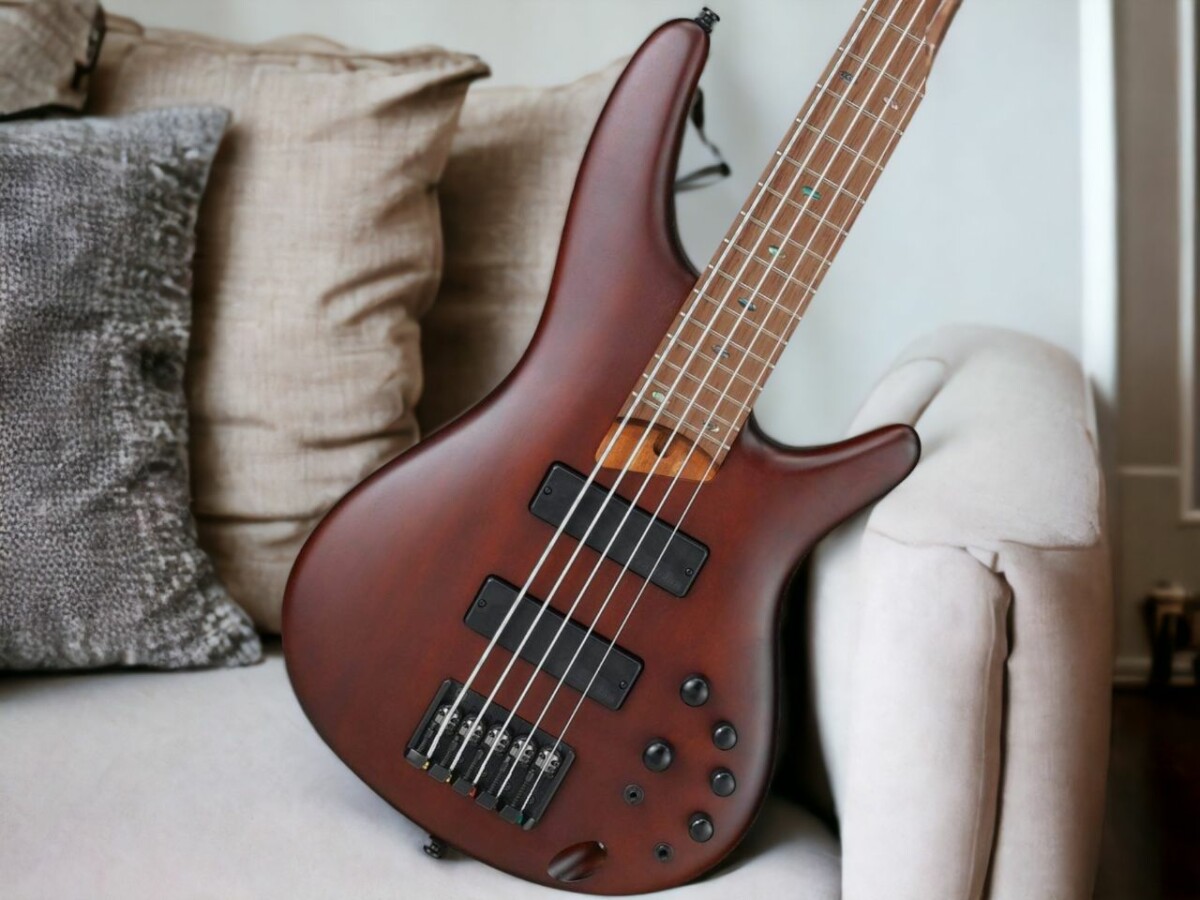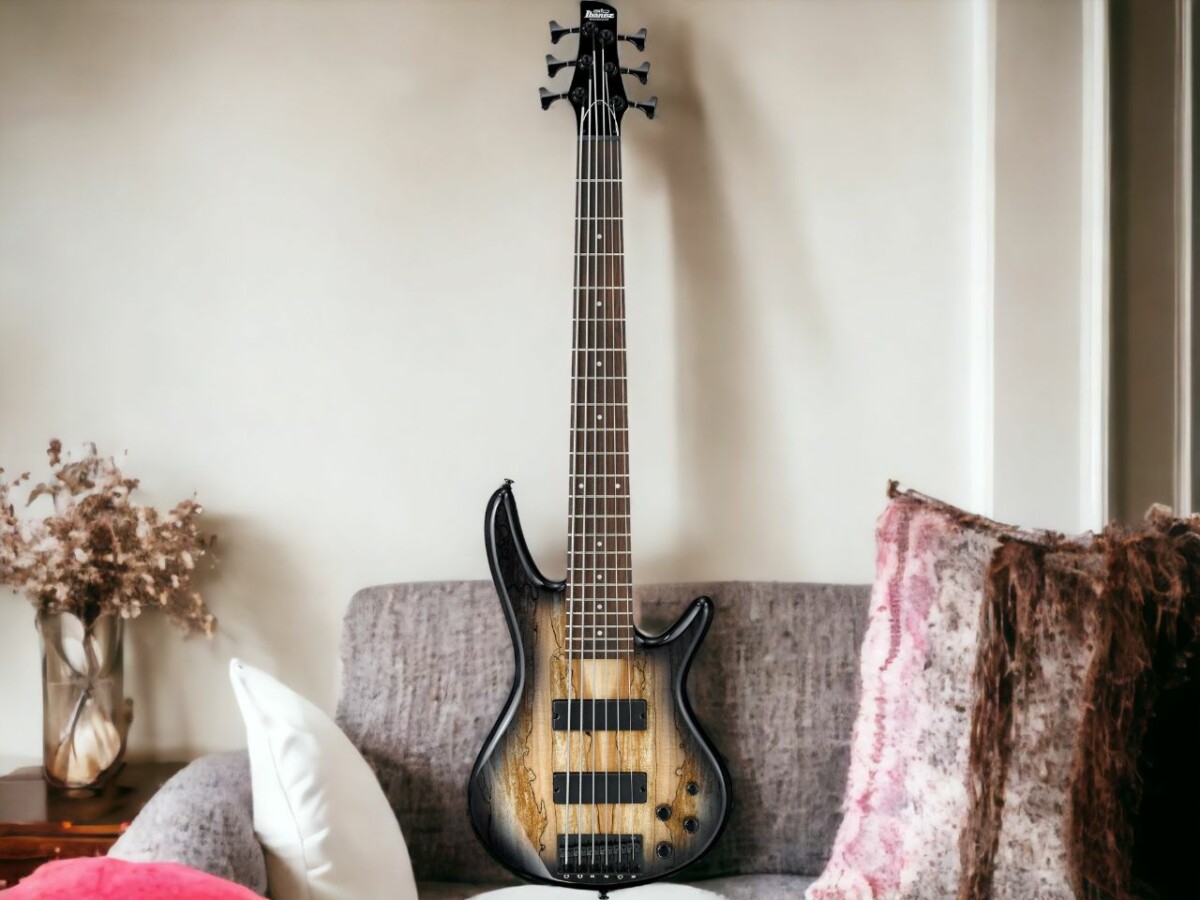So, you’re gripping your bass guitar, pumped up to belt out some groovy tracks. But here’s a thought, have you ever considered if this bad boy needs a battery?
If you’re rocking an active model, you’re gonna need one. They’re equipped with inbuilt pre-amps to tweak your sound, but they’re pretty juice-hungry.
On the other hand, if you’ve got a passive model, you’re all good, no battery needed. Getting your head around this can save you from any unexpected, awkward silences mid-jam session.
So, basically, Bass guitars themselves don’t need batteries. But, some bass guitars have active pickups or onboard preamps that require batteries.
Active and Passive Bass Guitars
You know what, understanding bass guitars, active or passive, isn’t as tricky as it seems. You just need to figure out the one thing that separates them – the battery. Yeah, that’s right, the battery. An active bass guitar, with its fancy onboard pre-amp circuits, can’t run without a battery. But hey, a passive one doesn’t need one.
So, when it comes to the big debate of active vs. passive pickups, it really boils down to what you’re looking for. Active pickups, juiced up by a battery, pack more punch and give off less noise. The catch? You’ve got to switch out the battery every now and then to keep it sounding sharp.
On the flip side, passive pickups serve up a classic, velvety tone that might be just what you’re craving. However, they can fall short on output and might pick up a bit of annoying hum.
And if you’re all about prolonging battery life on your active bass, here’s a cool trick – just add an ON/OFF switch. It lets you give the bass a rest when you’re not jamming, stretching out that battery life. Simple, right?
The Role of Batteries in Active Bass Guitars
The secret sauce to an active bass guitar’s signature vibe and strength boils down to one thing – the battery. It’s that little juice pack that fuels the onboard pre-amp circuits, bringing to life the unique sound waves that define this guitar type.
Let’s break it down:
- Saving Battery Juice: Keep in mind, your active bass guitar’s battery will run out quicker if you leave it plugged in. So, if you want to get more life out of your battery, think about installing an ON/OFF switch for those times when you’re not jamming.
- Battery Lifespan: If you’re good at unplugging your guitar after every jam session, your battery could go on for a whole year. But, let’s be real, it’s best to play it safe and switch out batteries every few months.
- Rechargeable Batteries: Some bass guitars come with built-in rechargeable batteries, which are both economical and green.
Getting your head around this battery business will make sure your active bass guitar is always ready to belt out its best, while keeping the battery use in check.
Battery Drainage: Causes and Conservation
Knowing how your bass guitar’s battery drains is seriously important, and learning how to save that precious power can totally change your jamming sessions. We’ve all had that annoying experience where the battery just seems to run out way too quickly, right? Often, this is because we forget to unplug the guitar when we’re done playing. Leaving it plugged in keeps the pre-amp circuits powered up and sucks the life out of your battery. So, make it a habit to unplug after every session, it’s a super easy way to keep your battery going for longer.
If your bass has a built-in accumulator, don’t forget to charge it up regularly. Nothing worse than reaching for your guitar only to find it dead because you forgot to charge it. And if you’re really keen on preserving your battery life, think about adding an ON/OFF switch. This can help you to shut down the pre-amp while taking a break, and reduce that unnecessary power drain.
In essence, being aware of how you’re using your guitar and making these small changes can really help to extend your battery life. Plus, it ensures you’re always ready to rock out, without worrying about a dead battery. It’s all about that balance between enjoying your music and being smart about power usage.
Battery Life and Replacement
Let’s chat about the battery life in your bass guitar. It’s super important to keep in mind that maintaining a regular battery swap is the secret sauce to ensuring your sound stays on point and doesn’t go all fuzzy.
So here are some pro tips:
- There’s no one-size-fits-all answer to how long batteries last in active bass guitars. It’s a mixed bag, but as a rule of thumb, if you’re strumming away pretty often, you should be looking at swapping out your battery every six months or so.
- Here’s a no-brainer – always unplug your guitar when you’re done shredding. Trust me, it’s a game changer for preserving that battery life.
- Here’s a thought – ever considered using a battery with a higher mAh rating? It’s a bit like upgrading to first class, more room for battery life.
Sure, active bass guitars might need more love in the battery department, but it’s a small price to pay for the killer control, tone, and versatility they give you. It’s like a minor speed bump on the road to rockstar status. Speaking of requirements, have you ever wondered if bass guitars need special amps? It’s something to consider when setting up your sound. It’s like a minor speed bump on the road to rockstar status.”
The Impact of Onboard Pre-Amp Circuits in Bass Guitars
In the realm of bass guitars, onboard pre-amp circuits are game changers when it comes to defining your sound. While we are discussing bass guitars, you might be curious about how many bass guitars you actually need. They’re the heart of active models, getting their juice from batteries. These pre-amp circuits aren’t just there for show, they offer a bunch of perks.
They’re like your personal sound boosters, taking weak signals and giving them a lift, balancing impedance, and, the real deal, they let you directly tweak the bass, mid, and treble frequencies right from your bass guitar. It’s like having a mini sound mixer in your hands. You’ve got the power to shape your tone quality right there.
But remember, with great power comes great responsibility. How you use the pre-amp can make or break your sound. Overdoing it can make your sound feel a bit too artificial. But if you’re smart about it, and make subtle adjustments, you’ll notice your bass tones sounding richer and deeper. Maintaining your guitar isn’t just about the electronics; the strings play a crucial role too. If you’re unsure about the frequency, learn how often you should change your bass guitar strings to keep your sounds crisp.

